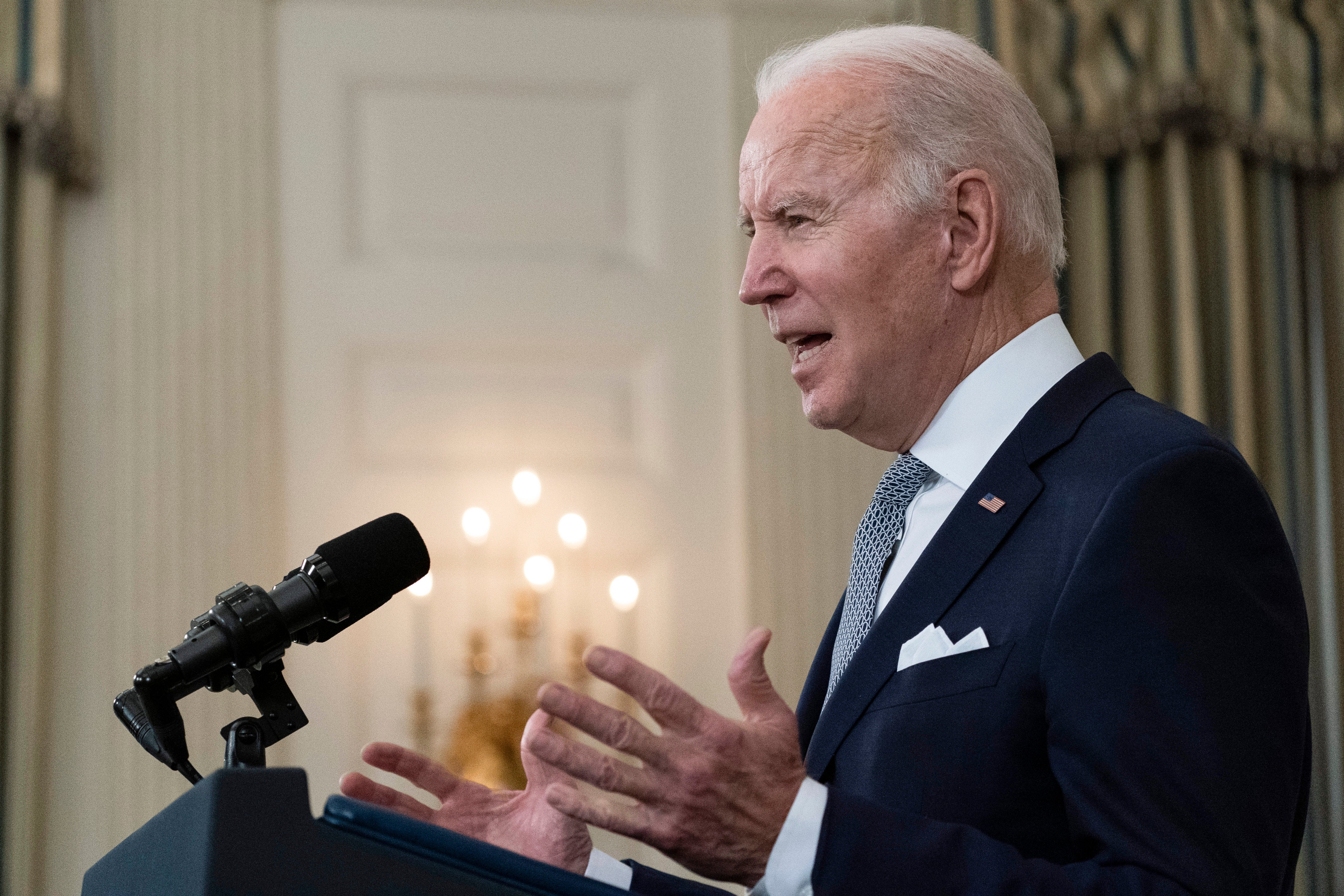Biden facing an important week in dealing with Putin and Russia
At a time when dealing with the domestic agenda is of upmost importance, the White House will be leaning on Europe over Moscow’s actions on the Ukraine border, writes Chris Stevenson


Over the next few days US, Russian and Nato officials will discuss the military build-up by Russia on the border with Ukraine – with the added complication of troops from Russia being sent to help quell anti-government protests in neighbouring Kazakhstan.
Wendy Sherman, the deputy secretary of state, will face Russian deputy foreign minister Sergei Ryabkov in Geneva on Monday, while on Wednesday talks involving officials from Nato – including its 30 member states – and Russia will take place in Brussels. Moscow has claimed that it plans no invasion of Ukraine and has been forced into the massing of troops as it sees the westward expansion of Nato influence a threat and has called for the western nations to ease back on its backing for Ukraine.
Joe Biden has sought to talk tough, telling his Russian counterpart Vladimir Putin that there are “two paths” now – one de-escalation and talks, the other being “serious costs and consequences” such as unprecedented economic sanctions and further military assistance to Ukraine if Moscow moves to invade. Putin has said that any added sanctions will completely rupture US-Russia ties.
Such bellicose talk is not unusual in the long history of US-Russia relations – and there have been reports over where negotiations could go – but US officials know how important a united front with European allies is. Biden is facing a difficult time on the domestic front and foreign policy taking up the agenda is probably one of the last things that the president wants.
He is facing issues over Covid-19 and the added burden that it places on the economy, as well as supply chain issues and a long run-up to crucial midterm elections in November. To take one example, the Supreme Court heard arguments over appeals involving Biden’s federal vaccine and testing mandates for large employers and some health care workers on 7 January – with the mandates being a significant part of the strategy to stop the spread of Covid. Conservative judges on the court expressed their scepticism at the government having authority to impose such broad measures.
The latest Gallup polling on what citizens see as America’s “most important problem” has the economy top, with the government/poor leadership second and Covid third. Foreign policy does not even crack the top 10. In other words, Biden has enough on his plate and Wednesday's meeting will be important in securing a united front.
The White House will know the importance of not looking weak in front of Moscow – the American people would quickly pick up on that – but it will not want to carry the burden alone, even though European nations are obviously facing similar issues over Covid and the economy.
“The number one thing” for the talks to be successful “is that it’s not just the US,” retired Lieutenant General Ben Hodges, the former commander of US army forces in Europe, told NBC News. Biden will know that – he will not want to be seen to be too distracted from the domestic political issues.
Join our commenting forum
Join thought-provoking conversations, follow other Independent readers and see their replies
Comments
Bookmark popover
Removed from bookmarks